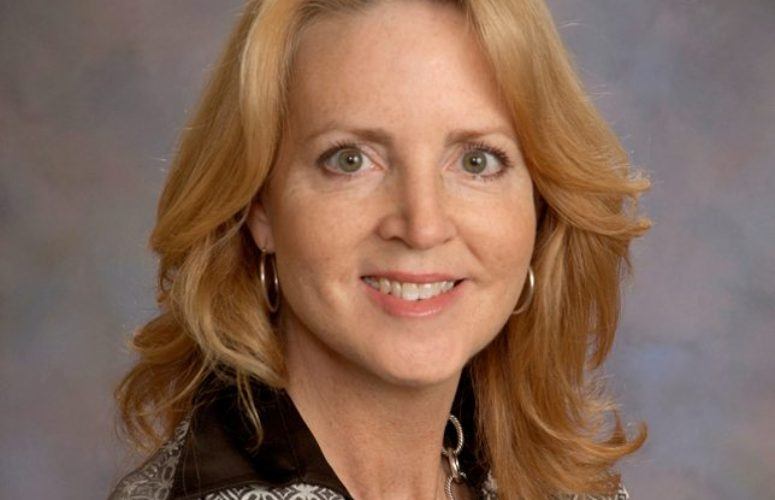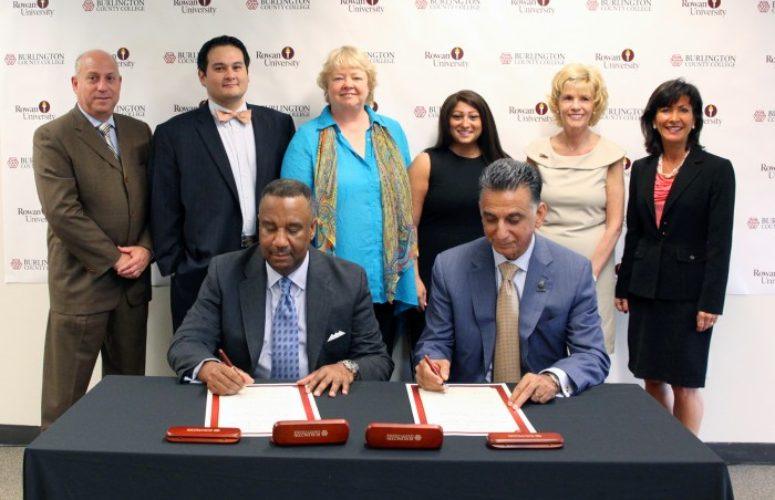
NSF Funds Rowan U $1.92M to Expand Diversity inEngineering
On Jul 13, 2016Women, underrepresented minorities and underserved groups are not common in engineering. Rowan University is intent on changing that.
Under the largest grant ever awarded to a Rowan professor by the National Science Foundation – $1.92 million – Dr. Beena Sukumaran will head a team conducting research and implementing strategies to improve diversity in the high-demand field of engineering.
The five-year project – “Rethinking Engineering Diversity, Transforming Engineering Diversity (REDTED)” – is a multi-faceted approach that will start with drawing more women and underrepresented populations to the Civil and Environmental Engineering Department at Rowan, expand it to other programs in the Henry M. Rowan College of Engineering, provide implementation plans to universities in the region and finally make the program available to colleges and universities nationwide.
Currently, according to the U.S. Census, women comprise 13.1 percent of civil engineers in the United States, and minorities comprise 24.4 percent, of which 11.6 percent are Asian Americans.
“This is a problem nationwide. We have to recognize that when we bring together a diverse group of students, we enhance every student’s academic experience and better prepare our future engineers,” said Sukumaran, department head of Civil and Environmental Engineering. “This is important for our nation’s future and global competitiveness. If we do not have students from various backgrounds and cultures, we cannot effectively compete in a global marketplace.”
Rowan Engineering has worked towards improving female and minority enrollment since it opened its doors in 1996, including running the summer program Attracting Women Into Engineering (AWE) for middle school girls. REDTED is the College’s most ambitious diversity effort yet.
One of the project’s initial goals is to grow the representation of women and underrepresented minorities in Civil and Environmental Engineering from 19.3 percent to more than 50 percent during the life of the NSF grant.
The approach under REDTED, funded by NSF’s Revolutionizing Engineering and Computer Science Departments program, includes:
- Radically changing admission standards to promote diversity, in part by considering factors such as rigor of courses taken in high school, high school grades, volunteer activities and personal background and experiences rather than SAT/ACT scores.
- Enhancing the perception and understanding of diversity and equality among students, faculty and administrators to develop inclusiveness, including offering faculty workshops and encouraging professors to evaluate their teaching and testing strategies.
- Working in tandem with Rowan’s existing programs to identify and assist students from lower socioeconomic backgrounds get into college, thrive and graduate on time.
- Developing a Teaching-Mentoring-Leadership Engineering Clinic, modeled on the Advocate and Allies Program for faculty started by North Dakota State University, which teams first-year and transfer students with juniors and seniors who can introduce them to academic and nonacademic nuances of the program, provide tutoring and otherwise support the less-experienced students.
- Transforming the existing second- and third-year engineering curriculum to a more inclusive approach, providing a big-picture overview of the field that research indicates resonates more with all students, especially women and minorities.
- Enriching students’ aspirations by providing successful and diverse role models from industry and academia, including bringing in nationally recognized guest lecturers who can serve as inspiration for the students.
- Expanding an already robust K-12 outreach and working with Rowan’s Admissions Office to educate youth about engineering as a possible career path.
The team also will work toward promoting inclusiveness in curriculum design, teaching and learning, and department systems according to previously developed benchmarks; improve the retention of traditional college admits and transfer students from 85 to 95 percent; improve five-year graduation rates of all Civil and Environmental Engineering students from 68 percent (already higher than the 55-percent engineering national six-year average) to 80 percent; and change the faculty evaluation and reward system to emphasize inclusive practices.
The Rowan team will present webinars and conference workshops on transforming engineering education; consult with other institutions interested in implementing its model; and produce an online “transformation kit” detailing all steps of that transformation for other schools to implement as appropriate, including a step-by-step guide to develop new courses, an approach to diversity-related problems and an outline of successful strategies implemented at Rowan.
“Diversity is a challenge every college of engineering deals with. But we have some forward-thinking engineering professors, and we’ve been working to address this imbalance. Dr. Sukumaran’s grant will enable us to break new ground,” said Dr. Ali Houshmand, president of Rowan University.
Added Dr. Anthony Lowman, dean of the Henry M. Rowan College of Engineering, who indicated Rowan Engineering has long tackled challenges in engineering education, “We’re glad that the National Science Foundation has trusted us to lead the way. Our goal is to remove the word ‘underrepresented’ from the engineering profession.”
“Nothing should get in the way of a student’s dream just because opportunity may be out of reach. Rowan University has led the way to attract a diverse student body. This funding will further help the University in its vital mission to recruit and train students from all backgrounds for the jobs of the future. The field of engineering, like all job fields, should be representative of America. Rowan University’s engineering program will not only mirror the population of the United States – but serve as a model for other colleges and universities. They should be proud of this pioneering achievement,” said Rep. Donald Norcross.
(The team also includes Dr. Harriet Hartman, Sociology; Dr. Stephanie Farrell, Chemical Engineering, Drs. Kauser Jahan, Parth Bhavsar, and Ralph Dusseau, Civil and Environmental Engineering; Dr. Jeffrey Hand, vice president for Strategic Enrollment Management; J.T. Mills, assistant director for Multicultural and Inclusion Programs; and Theresa F. Bruckerhoff, an external evaluator from Curriculum Research and Evaluation, Inc.)
Related Articles:





